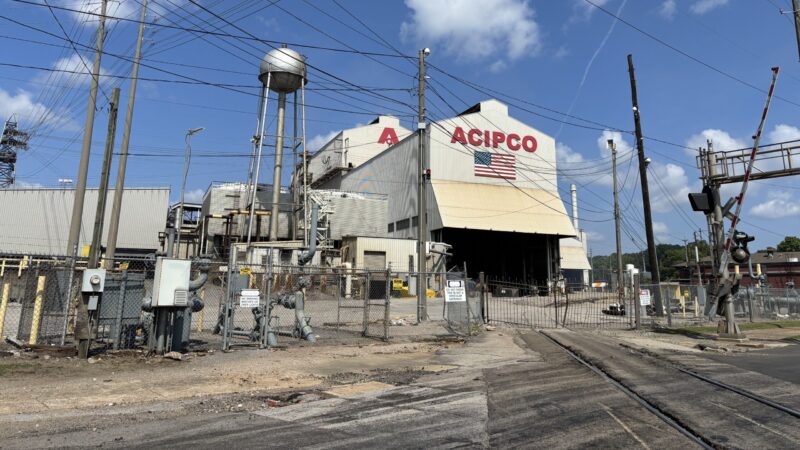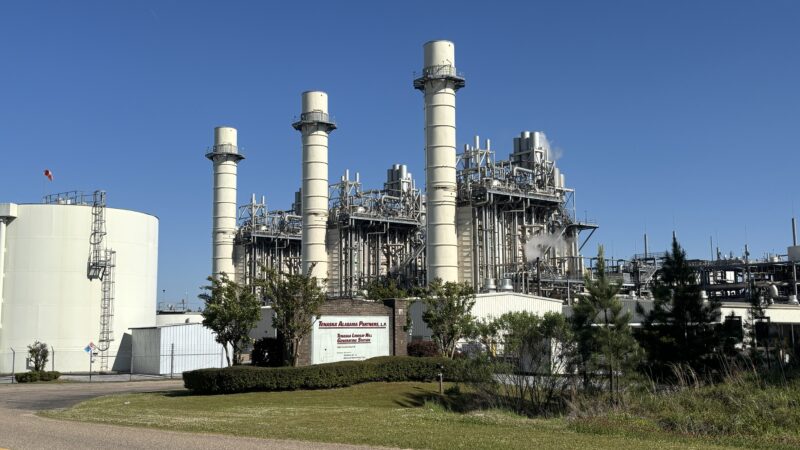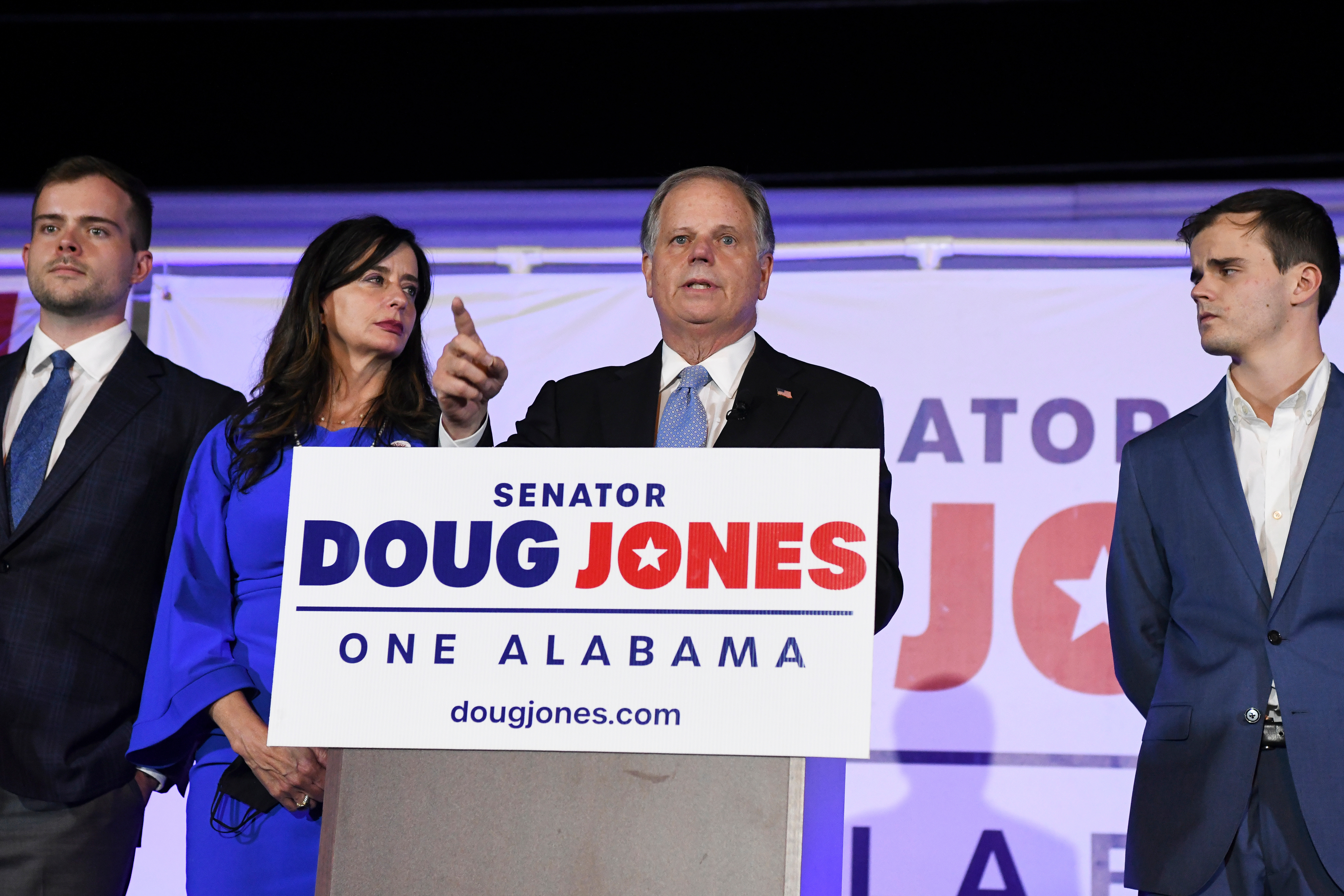Canceled climate grants would have cut pollution while boosting production, jobs at two Alabama ironworks
American Cast Iron Pipe (ACIPCO) was founded in Birmingham in 1905 and employs approximately 1,600 people at its Birmingham facilities.
This article originally appeared on Inside Climate News, a nonprofit, independent news organization that covers climate, energy and the environment. It is republished with permission. Sign up for their newsletter here.
By Dennis Pillion, Inside Climate News
BIRMINGHAM, Ala.—Two iron pipe manufacturers in Alabama learned last month they lost a combined $150 million in promised federal funding that would have increased productivity and employment while slashing greenhouse gas emissions and other air pollution.
The grants, $75 million each, were issued to the American Cast Iron Pipe Company in Birmingham and the U.S. Pipe and Foundry Company in Bessemer through the U.S. Department of Energy’s Office of Clean Energy Demonstrations to replace older coke or gas-fueled blast furnaces with electric induction furnaces.
The projects were estimated to cut the greenhouse gas emissions at U.S. Pipe by 73 percent and at American Cast Iron Pipe by 62 percent.
“This project is expected to reduce the cost of operations, improve manufacturing capacity, and enhance overall melting process and reliability, demonstrating the viability of electrifying a core process for iron and steel manufacturing,” the U.S. Pipe project description states.
The two Alabama grants were among 24 clean energy awards terminated last week by the Department of Energy, totaling $3.7 billion.
The DOE said in a news release announcing the cuts that the terminated awards “failed to advance the energy needs of the American people, were not economically viable and would not generate a positive return on investment of taxpayer dollars.”
Energy Secretary Chris Wright said in the release that the Biden administration “failed to conduct a thorough financial review” before approving the projects last year.
“While the previous administration failed to conduct a thorough financial review before signing away billions of taxpayer dollars, the Trump administration is doing our due diligence to ensure we are utilizing taxpayer dollars to strengthen our national security, bolster affordable, reliable energy sources and advance projects that generate the highest possible return on investment,” Wright said. “Today, we are acting in the best interest of the American people by cancelling these 24 awards.”
Both companies have deep roots in Birmingham’s industrial center and have been operating in the area for more than a century. Both make ductile iron pipes used for water and wastewater infrastructure, among other products.
The projects would have decreased both facilities’ reliance on coke as fuel. Coke, a purified form of coal, is created by “baking” coal in high-temperature, low oxygen ovens to remove impurities. The ovens use large amounts of energy to make coke, and are often associated with numerous potentially hazardous emissions.
The National Cancer Institute warns that coke oven emissions “typically include carcinogens such as cadmium and arsenic,” and that “[e]xposure to coke oven emissions increases the risk of lung cancer and, possibly, kidney cancer.”
A coke plant in Birmingham was shuttered by local authorities due to alleged Clean Air Act violations in 2021 and has not reopened.
“By replacing the burning of coke with electric induction, this project would substantially improve air quality including reductions in particulate matter, nitrogen oxides, and sulfur oxides for nearby communities,” the U.S. Pipe project description states.
American Cast Iron Pipe, or ACIPCO, said it “remains committed to moving forward” with the project despite the loss of federal funding.
“American is disappointed to learn that our cooperative agreement with the Department of Energy for our Next Generation Melt Project has been terminated,” the company said in a released statement.
“Once completed, the Next Generation Melt Project and future downstream projects will increase capacity, provide flexibility with production scheduling and add high-quality, high-paying jobs,” the company said.
According to the company website, the project is estimated to be completed in 2029.
ACIPCO was founded in Birmingham in 1905 and employs approximately 1,600 people at its Birmingham facilities.
U.S. Pipe did not respond to requests for comment from Inside Climate News or other media outlets.
The company removed a 2024 press release touting the grant from its website and has not indicated whether it plans to continue the electrification project.
U.S. Pipe was created in 1899 by consolidating 14 iron and steel foundries in nine states. One of those was the Howard-Harrison Iron Company in Bessemer. Local economic development agencies say U.S. Pipe employs 970 people in Alabama.
Auburn tabs USF’s Alex Golesh as its next coach, replacing Hugh Freeze on the Plains
The 41-year-old Golesh, who was born in Russia and moved to the United State at age 7, is signing a six-year contract that averages more than $7 million annually to replace Hugh Freeze. Freeze was fired in early November after failing to fix Auburn’s offensive issues in three seasons on the Plains.
Alabama Power seeks to delay rate hike for new gas plant amid outcry
The state’s largest utility has proposed delaying the rate increase from its purchase of a $622 million natural gas plant until 2028.
Former U.S. Sen. Doug Jones announces run for Alabama governor
Jones announced his campaign Monday afternoon, hours after filing campaign paperwork with the Secretary of State's Office. His gubernatorial bid could set up a rematch with U.S. Sen. Tommy Tuberville, the Republican who defeated Jones in 2020 and is now running for governor.
Scorching Saturdays: The rising heat threat inside football stadiums
Excessive heat and more frequent medical incidents in Southern college football stadiums could be a warning sign for universities across the country.
The Gulf States Newsroom is hiring an Audio Editor
The Gulf States Newsroom is hiring an Audio Editor to join our award-winning team covering important regional stories across Mississippi, Alabama and Louisiana.
Judge orders new Alabama Senate map after ruling found racial gerrymandering
U.S. District Judge Anna Manasco, appointed by President Donald Trump during his first term, issued the ruling Monday putting a new court-selected map in place for the 2026 and 2030 elections.









